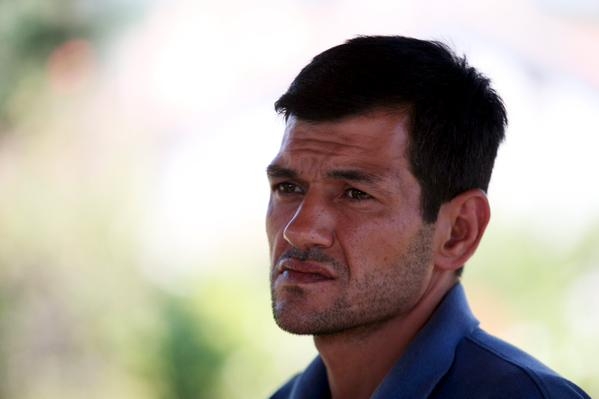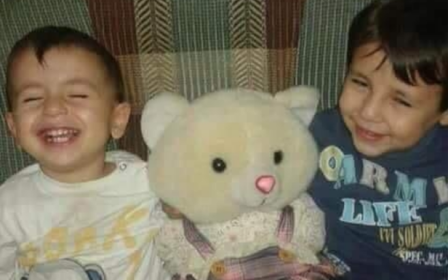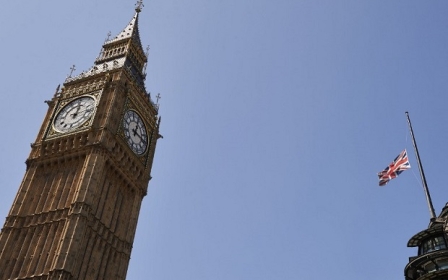Aylan Kurdi's father rejects Canadian offer of citizenship

The father of two Syrian boys who drowned off the Turkish coast of Bodrum on their way to the Greek island of Kos has rejected Canadian citizenship after it was offered to him in the aftermath of Wednesday's tragic events.
Abdullah Kurdi, who also lost his wife Rehana as the boat they were on capsized, had a face of anguish as he emerged from the morgue in the city of Mugla near Bodrum to identify the bodies of his sons, three-year-old Aylan and five-year-old Galip.
The family, whose surname is given by Turkish media as Kurdi but AFP sources in Syria say is actually called Shenu, had their privately-sponsored refugee application to Canada rejected in June, with media quoting Kurdi’s sister Teema as saying that the rejection was based on complications with applications from Turkey.
“I was trying to sponsor them, and I have my friends and neighbours who helped me with the bank deposits, but we couldn’t get them out, and that is why they went in the boat,” she told Canada’s National Post.
(Later on Thursday, Canadian authorities denied that the family had applied for refugee status there and also denied offering citizenship to Abdullah Kurdi.)
Teema Kurdi’s local MP in Canada, Fin Donnelly, said she has been torn apart by the deaths of relatives.
“She was just completely upset and heartbroken,” he said, according to the Guardian. “She [said] that she’s spoken to her brother and it’s very hard for him to even want to stay alive at this point, knowing what he’s going through.”
Turkish authorities arrested on Thursday four suspected people smugglers - Syrian nationals aged between 30 and 41 - over the twin accidents that killed Aylan and 11 others.
They are accused of "causing the death of more than one person" and "trafficking migrants", the Dogan news agency reported.
The Kurdi family had fled from their hometown of Kobane in Syria, and were trying to leave Turkey to go to Canada.
Canadian authorities offered Kurdi citizenship after images of his son Aylan, wearing a bright red shirt and blue shorts washed up on the beach with his face in the sand went viral, provoking global sympathy. But the distraught father declined, saying that he just wants to go back to Kobane to bury his wife and children.
“I was holding my wife’s hand,” Kurdi told Turkey’s Dogan news agency. “But the children slipped through my hands. We tried to cling to the small boat, but it was deflating. It was dark and everyone was screaming. I couldn’t make my voice heard to my wife and kids.”
Rehana, Aylan and Galip were among the 12 people who drowned after two boats carrying 22 people capsized.
"I tried to swim to the shore with the help of the lights but couldn't find my wife and children once I was there. I thought they got scared and ran away," he said.
"When I couldn't find them in our meeting point in [Bodrum] where we normally meet, I went to the hospital and got the bad news."
Kurdi said that the boat began to take in water once they were 500 meters from the shore.
Turkish security officials said that the bodies of the mother and two children will be flown via Istanbul to the south-eastern city of Sanliurfa. From there, they would be taken by road to the Syrian border town of Kobane.
In a statement made to the police, Kurdi describes how he had paid smugglers to take him and his family to Greece twice, unsuccessfully.
“At the first attempt, the coastguard officials detained us and we were later released,” he said.
Traffickers didn’t show up on the second attempt, leaving the family - along with other refugees from their hometown - resorting to finding a boat using their own resources.
But as the boat began to take in water, the refugees in their panic stood up and the boat tipped over.
"The things that happened to us here, in the country where we took refuge to escape war in our homeland, we want the whole world to see this," Abdullah told reporters.
"We want the world’s attention on us, so that they can prevent the same from happening to others. Let this be the last," he said.
Middle East Eye propose une couverture et une analyse indépendantes et incomparables du Moyen-Orient, de l’Afrique du Nord et d’autres régions du monde. Pour en savoir plus sur la reprise de ce contenu et les frais qui s’appliquent, veuillez remplir ce formulaire [en anglais]. Pour en savoir plus sur MEE, cliquez ici [en anglais].



